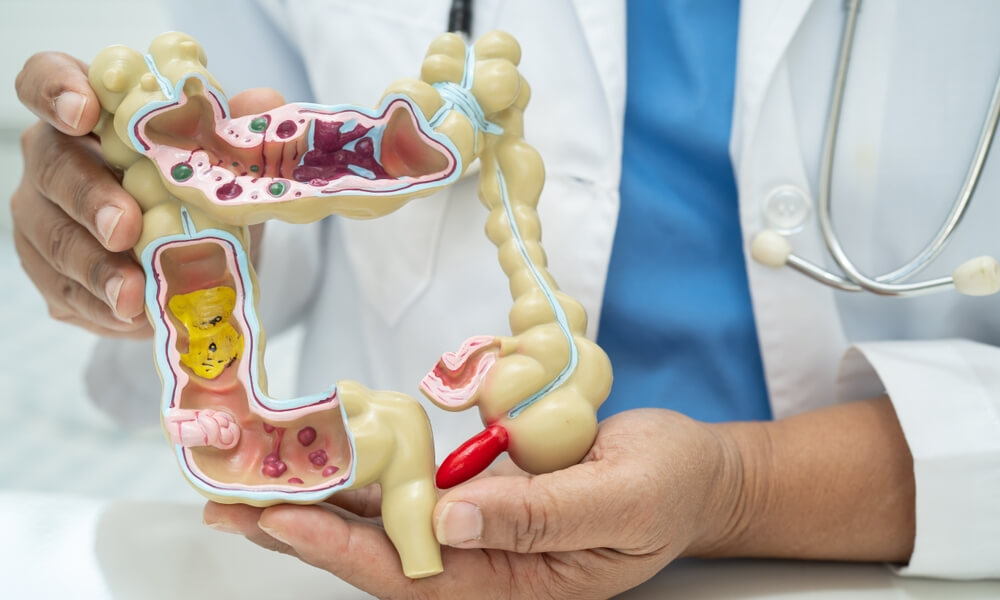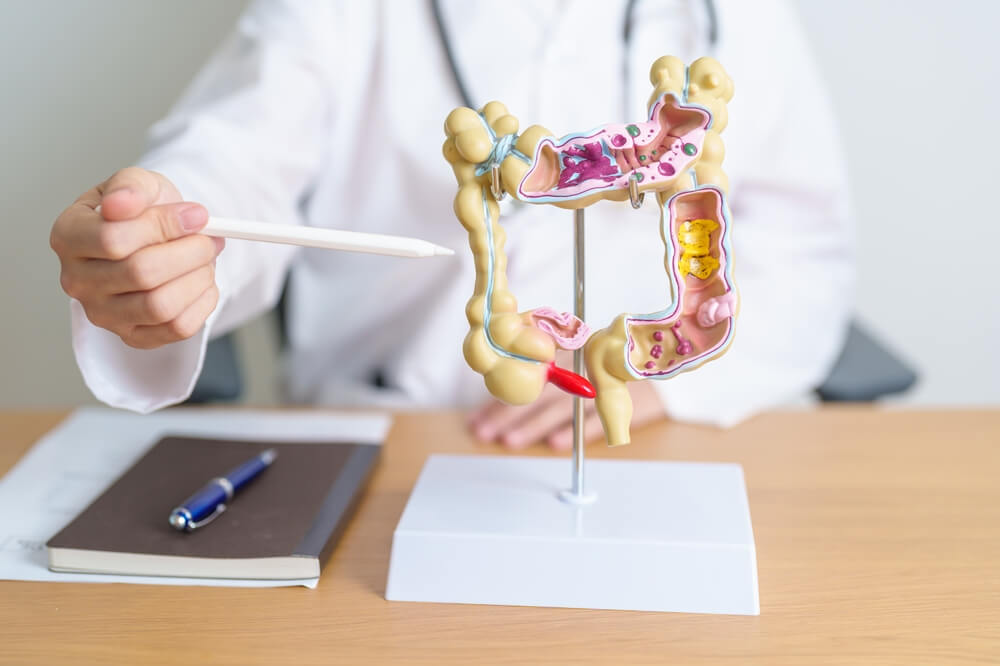
Bowel leakage, a distressing condition, often raises cancer concerns. Understanding symptoms and knowing when to seek medical advice is crucial for digestive health. This text explores causes beyond cancer, its link to colorectal cancers, and risk factors. It outlines diagnostic steps and treatment options for bowel control issues. Emphasizing regular screenings and preventive measures, this guide offers insights into maintaining optimal bowel health while addressing fecal incontinence concerns.
What is Bowel Leakage and How Common is It?
Bowel leakage, also known as fecal incontinence, is a condition characterized by the inability to control bowel movements, leading to unexpected leakage of stool. This issue can range from occasional minor leaks to a complete loss of bowel control and can significantly impact an individual’s quality of life.
Understanding what causes bowel leakage is crucial for managing and treating this condition. There are several potential causes, including muscle or nerve damage associated with childbirth, surgery, or aging. Chronic conditions like diabetes or multiple sclerosis can also contribute to these bowel control issues by affecting the nerves that regulate bowel function. Additionally, persistent diarrhea or constipation can weaken the rectal muscles over time, exacerbating fecal incontinence.
Bowel leakage is more common than many might think. Studies suggest that it affects millions worldwide, with prevalence increasing with age. Despite its frequency, many individuals hesitate to discuss their symptoms due to embarrassment or stigma. However, seeking medical advice is essential for diagnosis and treatment options tailored to individual needs.
Addressing bowel leakage involves understanding its underlying causes and exploring various treatments ranging from dietary changes and medications to physical therapy and surgical interventions when necessary. By shedding light on this common yet often overlooked condition, individuals suffering from fecal incontinence can find pathways toward improved management and quality of life.
Possible Causes of Bowel Leakage (Beyond Cancer)

When discussing bowel leakage, medically known as fecal incontinence, it’s important to understand that this condition can arise from a variety of causes beyond the presence of cancer. While it is a sensitive topic, being informed about the potential underlying issues can lead to better management and treatment.
One common cause of fecal incontinence is digestive disorders. Conditions such as irritable bowel syndrome (IBS) or inflammatory bowel disease (IBD), which includes Crohn’s disease and ulcerative colitis, can lead to episodes of diarrhea or constipation that contribute to leakage. These disorders often result in inflammation and damage to the intestinal lining, affecting normal bowel function.
Another factor contributing to this condition could be general bowel health issues. For instance, chronic constipation can sometimes stretch and weaken rectal muscles over time, leading to difficulty controlling stool passage. Additionally, nerve damage from childbirth or surgical procedures around the pelvic region may impair muscle control necessary for maintaining continence.
Gastrointestinal problems also play a significant role in fecal incontinence. Conditions like diabetes can cause nerve damage (neuropathy) that affects the gastrointestinal tract’s normal operations. Similarly, neurological disorders such as multiple sclerosis or Parkinson’s disease might disrupt signals between the brain and bowels, leading to accidental leakage.
Understanding these various causes is crucial for those experiencing symptoms of fecal incontinence. By recognizing these potential factors early on, individuals are better equipped to seek appropriate medical advice and explore treatment options that address their specific needs beyond just ruling out cancer as a cause.
Bowel Leakage as a Symptom (Should You Be Concerned About Cancer?)
Bowel leakage, while often an uncomfortable topic, can be a crucial symptom that warrants attention. It’s important to understand that bowel leakage is not always indicative of cancer; however, it can be one of the early signs of colon cancer or other gastrointestinal issues. Recognizing the potential link between bowel leakage and more serious conditions like colorectal cancer is essential for early detection and treatment.
Colorectal cancer warning signs often include changes in bowel habits such as diarrhea or constipation, rectal bleeding, persistent abdominal discomfort, and unexplained weight loss. Bowel leakage may accompany these symptoms as the disease progresses or as a result of tumor growth affecting normal bowel function.
If you experience persistent or unusual changes in your bowel habits, it is crucial to consult with a healthcare professional. Early intervention can make a significant difference in outcomes for those diagnosed with colorectal cancer. Regular screenings and being aware of bowel cancer symptoms are vital steps in maintaining gastrointestinal health and catching any potential issues early on. Remember, while not all symptoms point to cancer, staying informed and proactive about your health is always beneficial.
The Role of Risk Factors in Colon and Rectal Cancers
Understanding the role of risk factors in colon and rectal cancers is crucial for both prevention and early detection. Risk factors for colon cancer can be broadly categorized into lifestyle, environmental, and genetic elements. While some factors such as age, family history, and genetic predisposition to bowel cancers are beyond individual control, others like diet, physical activity, and smoking can be managed to reduce risk.
Colorectal cancer risk factors include a high-fat diet low in fruits and vegetables, obesity, sedentary lifestyle, excessive alcohol consumption, and smoking. These lifestyle choices can contribute significantly to the development of colorectal cancer over time. Moreover, individuals with a family history of colorectal cancers or those who have inherited conditions such as Lynch syndrome or familial adenomatous polyposis have a higher genetic predisposition to these types of cancers.
Regular screening is vital for those with increased risk due to these factors. Early detection through screenings like colonoscopies can help identify precancerous growths before they develop into full-blown cancer. Understanding these risk factors empowers individuals to make informed decisions about their health while enabling healthcare providers to tailor preventive strategies effectively.
Diagnostic Steps (What to Do if You Experience Bowel Leakage)
Experiencing bowel leakage can be distressing, and understanding the diagnostic steps to address this issue is crucial for effective management. The first step in diagnosing bowel problems is to assess the frequency and severity of symptoms. Keeping a detailed record of when leakage occurs, along with any accompanying symptoms such as abdominal pain or changes in stool consistency, can provide valuable insights.
When considering when to see a doctor for bowel issues, it’s important to seek medical advice if the leakage is persistent or worsening, especially if it’s accompanied by other concerning symptoms like unexplained weight loss or blood in the stool. A healthcare professional can help determine whether these signs indicate a more serious underlying condition.
Medical tests for bowel health typically begin with a thorough physical examination and review of your medical history. Your doctor may recommend specific tests such as stool analysis, blood tests, or imaging studies like an MRI or CT scan to identify any structural abnormalities. In some cases, endoscopic procedures like colonoscopy may be necessary to gain a clearer view of the intestinal tract and pinpoint potential causes.
Treatment Options for Bowel Control Issues and Underlying Conditions
Bowel control issues, such as fecal incontinence, can significantly impact quality of life, but there are various treatment options available to help manage these challenges. Understanding the underlying conditions is crucial for effective management and relief.
One common approach to addressing fecal incontinence involves dietary modifications. Increasing fiber intake can help regulate bowel movements and improve stool consistency. Additionally, staying hydrated and avoiding trigger foods that exacerbate symptoms are essential steps in managing digestive disorders.
For those seeking more direct interventions, pelvic floor exercises are often recommended. These exercises strengthen the muscles responsible for bowel control and can be particularly beneficial for individuals whose issues stem from weakened pelvic muscles.
In some cases, medications may be prescribed to manage symptoms more effectively. Options include anti-diarrheal drugs or laxatives, depending on whether constipation or diarrhea is a contributing factor to the condition.
For persistent or severe cases of fecal incontinence, medical procedures might be considered. Sacral nerve stimulation is one such option that involves electrical stimulation of nerves controlling bowel function. Surgery may also be an option when other treatments have not been successful; this could involve repairing damaged sphincter muscles or creating a colostomy.
Treatment for colon health issues should be tailored to each individual’s specific needs and underlying conditions. Consulting with healthcare professionals specializing in gastrointestinal health is critical to developing a comprehensive plan that addresses both symptoms and root causes effectively.
The Importance of Regular Screenings and Preventative Measures Against Cancer
Understanding the importance of regular screenings and preventative measures against cancer is crucial in maintaining overall health, particularly when it comes to colorectal cancer. Colorectal screening tests play a vital role in the early detection and prevention of this disease. These tests can identify precancerous polyps, which can be removed before they develop into cancer, significantly reducing the risk.
The prevention of colorectal cancer isn’t solely dependent on screenings; adopting a healthy lifestyle is equally important. Incorporating regular physical activity into your routine and maintaining a balanced diet rich in fruits, vegetables, and whole grains can enhance bowel health. Limiting red meat intake and avoiding processed meats are also recommended healthy lifestyle tips for bowel health.
Additionally, staying informed about your family medical history and discussing any concerns with your healthcare provider can further aid in effective prevention strategies. By combining regular colorectal screening tests with these proactive lifestyle changes, individuals can take significant steps toward reducing their risk of developing colorectal cancer.
